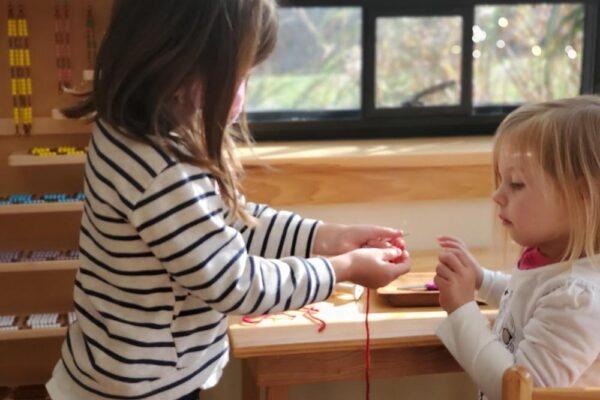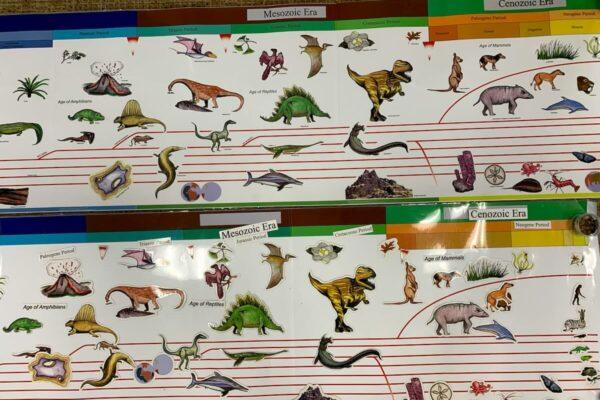There are many elements that make Montessori education stand apart from more conventional methods. One of the most obvious is our mixed-age classrooms. Rather than grouping children by a single chronological age, our classroom environments encompass children spanning across several ages. We find this method to be a huge benefit. Read on to learn more. […]
Read MoreGreat work is one characteristic of the Second Plane Child. What was once repetition, completing the same work over and over in the Primary classrooms, becomes repetition through elaboration in the Elementary classrooms. In this plane, children have a new found desire to do large projects that require an extensive amount of time and energy, […]
Read MoreArt Elementary continued their fibers unit this winter. Both classrooms made radial weavings with painted backgrounds, then moved on to sewing projects. Through sewing, students are strengthening fine motor skills while practicing practical life exercises such as threading a needle, completing a stitch, and tying a knot. Lower Elementary students are creating stuffed monsters from […]
Read MoreThrough her observations of children, Maria Montessori developed the theory of The Four Planes of Development, each plane having a distinct set of characteristics. Children experience both physical and psychological changes as they move from one plane to another. These changes are typically so profound that Dr. Montessori likened them to a rebirth. Children in […]
Read MoreNarragansett Bay StudyThe third year students have the opportunity to participate in a yearlong study of the Narragansett Bay and its importance to Rhode Island. We begin the year with an introduction to the geography, physical characteristics, and inhabitants of Narragansett Bay. The children familiarize themselves with a 4’x10’ nautical chart of the bay. They […]
Read MoreThe Quest day has a real rhythm for each of the program levels. Over the last several weeks we have painted a picture of the Quest Montessori Day in the classroom. One of the components of Elementary and Middle School is the special programming that happens throughout the week: Art, Music, Spanish, Theatre and Physical […]
Read More

